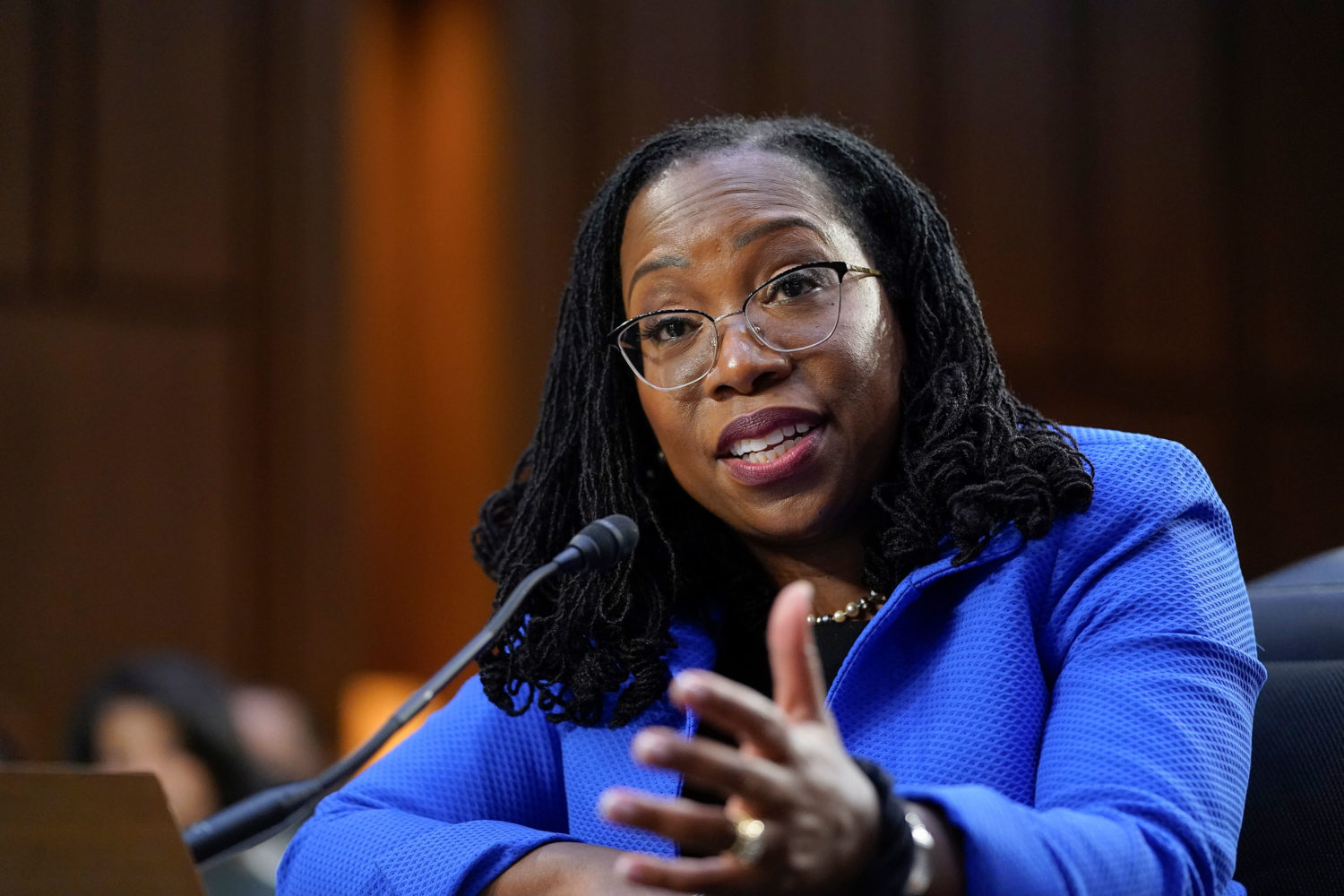
(CNN) — The Senate is on track to confirm President Joe Biden’s Supreme Court nominee Ketanji Brown Jackson on Thursday in a historic vote that will pave the way for her to become the first Black woman to serve on the highest court in the nation.
The nomination cleared a key hurdle earlier Thursday when the Senate took a procedural vote to limit debate and break a filibuster. Now, a final confirmation vote, which is expected to succeed, is set to take place as early as 1:45 p.m. ET and requires only a simple majority.
Vice President Kamala Harris will preside over the Senate during its historic vote to confirm Jackson, the vice president’s office said Thursday. Harris, who is the first Black woman to serve as vice president, will preside in her capacity as president of the Senate. Harris is not needed to cast a tie-breaking vote.
All 50 members of the Senate Democratic caucus are unified behind the nomination and three Republicans — Sens. Susan Collins of Maine, Mitt Romney of Utah and Lisa Murkowski of Alaska — have announced support as well.
Jackson’s confirmation won’t change the ideological balance of the court. The court currently has six conservative justices and three liberal justices — and retiring Justice Stephen Breyer comes from the liberal camp. But the confirmation will still mark a significant historic milestone for the Supreme Court and the federal judiciary.
Ahead of the final vote, Senate Majority Leader Chuck Schumer called the moment a “joyous, momentous, groundbreaking day.”
“The Senate will fulfill its constitutional duty to finally confirm this remarkable and groundbreaking jurist,” he said.
Schumer went on to say, “In the 233-year history of the Supreme Court, never, never has a Black woman held the title of Justice. Ketanji Brown Jackson will be the first and I believe the first of more to come.”
The confirmation will represent a victory for Democrats, which they can tout as bipartisan, and a way for the President to deliver on a campaign promise at a time when the party is facing a number of challenges at home and abroad, including soaring inflation and the crisis in Ukraine.
Biden had said during his 2020 presidential campaign that he was committed to nominating a Black woman to the Supreme Court if elected.
“If I’m elected as President and have the opportunity to appoint someone to the courts, I’ll appoint the first Black woman to the court. It’s required that they have representation now — it’s long overdue,” Biden said in March 2020.
At one point during her Senate confirmation hearings, Jackson became visibly emotional and could be seen wiping away tears as Democratic Sen. Cory Booker of New Jersey, who is one of only three Black senators, talked about her path to the nomination and the obstacles she has had to overcome.
“My parents grew up in a time in this country in which Black children and white children were not allowed to go to school together,” Jackson told Booker after the senator asked what values her parents impressed upon her. “They taught me hard work. They taught me perseverance. They taught me that anything is possible in this great country.”
Confirmation process
Throughout the Senate vetting process, Senate Democrats have praised Jackson as an exceptionally qualified, trail-blazing nominee whose depth and breadth of experience, including as a federal public defender, would add a valuable and unique perspective to the bench.
Jackson was also a commissioner on the US Sentencing Commission and served on the federal district court in DC, as an appointee of former President Barack Obama, before Biden elevated her to the DC Circuit last year.
Confirmation hearings featured sharp and critical questioning from Republicans as many attempted to portray Jackson as weak on crime and, in a highly-charged line of attack, too lenient in sentencing child pornography cases. Jackson and Democrats forcefully pushed back on the accusations.
Jackson stressed her concern for public safety and the rule of law, as a judge and an American. And she argued that she approaches her work in an impartial way and that personal opinions do not play a role.
Republicans called for civility and respect during the confirmation hearings, arguing that Democrats did not extend that to Brett Kavanaugh during his vetting process before the Senate. Kavanaugh faced a sexual assault allegation, which he vehemently denied.
Democrats, however, argued that Republicans crossed a line by distorting Jackson’s record, particularly with respect to sentencing in child pornography-related cases.
A CNN review of the material in question shows that Jackson mostly followed common judicial sentencing practices in these kinds of cases.
Jackson wins GOP support
In announcing that they would support the nomination, Murkowski and Collins both expressed concern over what they described as the politicization of the Supreme Court confirmation process.
Murkowski said that she rejects “the corrosive politicization of the review process for Supreme Court nominees, which, on both sides of the aisle, is growing worse and more detached from reality by the year” in her statement.
Collins said in her statement, “No matter where you fall on the ideological spectrum, anyone who has watched several of the last Supreme Court confirmation hearings would reach the conclusion that the process is broken.”
“It used to be common for Senators to give the President, regardless of political party, considerable deference in the choice of a nominee,” Collins said.
The Maine Republican said that approach “instilled confidence in the independence and the integrity of the judiciary and helped keep the Court above the political fray,” adding, “this is the approach that I plan to continue to use for Supreme Court nominations because it runs counter to the disturbing trend of politicizing the judicial nomination process.”
This story and headline have been updated with additional developments Thursday.
The-CNN-Wire
™ & © 2022 Cable News Network, Inc., a WarnerMedia Company. All rights reserved.



